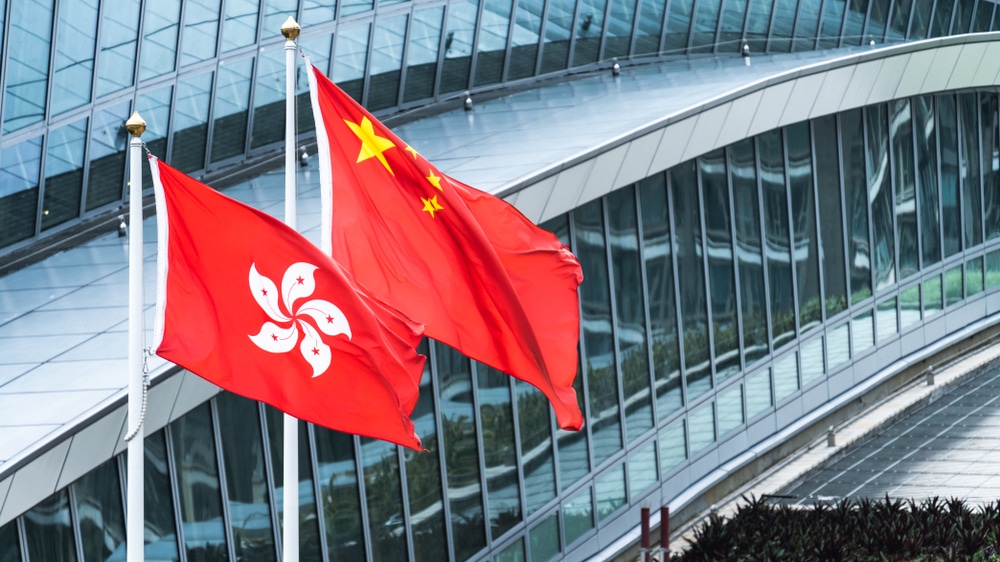Hong Kong Unleashes Stablecoin Licensing Era: Crypto’s Next Big Leap?
Hong Kong just flipped the switch on its stablecoin licensing framework—regulators are finally playing catch-up with the crypto revolution.
The new rules: protection or control?
The city’s financial watchdogs now demand full transparency from stablecoin issuers. No more shadowy algorithmic experiments—just hard reserves and audits. Traders get stability; bureaucrats get paperwork.
Asia’s crypto hub arms race heats up
While Singapore dithers and Tokyo overregulates, Hong Kong’s move could position it as the region’s stablecoin capital. (Take that, Wall Street banks still settling trades via fax.)
The fine print? Expect months of lobbying and loophole-hunting—because nothing sparks innovation like a 200-page compliance manual.
What Stablecoin Issuers Are Now Required to Do
Under the new rules, any company offering stablecoins backed by the Hong Kong or US dollar must get a license from the HKMA. It does not matter if the firm is based in Hong Kong or operating from overseas. The requirements are strict: issuers must keep full reserves at all times, clearly separate customer funds from their own, and guarantee that users can redeem tokens quickly. They’ll also be subject to audits, compliance checks, and vetting to ensure their leadership teams meet certain standards.

Licenses Are Live, but Approvals Come Later
Even though the law is in force now, licenses won’t be handed out right away. The HKMA says it will begin issuing approvals in early 2026. There will be a limited number of licenses granted in the first wave, and firms hoping to be among the first need to move fast. The deadline to signal interest is August 31, 2025. Full applications must be submitted by September 30. That timeline sets a clear pace for serious contenders.
Misleading Marketing Comes With Penalties
The HKMA made it clear that no one should be promoting themselves as a licensed issuer until they actually are. Any company caught doing so could face consequences. Only licensed entities will be allowed to advertise stablecoins to the general public. The regulator is taking a phased approach, and this early stage is clearly meant to set the tone and limit hype.
Some Big Names Are Already in the Mix
Several major companies have already expressed interest. JD.com, ANT Group, and Standard Chartered are among those preparing to register. Some are aiming to issue Hong Kong dollar stablecoins, while others are considering tokens backed by US dollars or offshore yuan. However, if a firm plans to use Chinese yuan, the HKMA expects full transparency around reserves and intended use cases.
Crypto Fundraising Is Picking Up Steam
The policy launch coincided with a wave of equity activity in Hong Kong’s fintech sector. In July, digital asset firms raised over 1.5 billion dollars in fresh capital. Groups like OSL, Dmall, and SenseTime are reportedly planning new offerings tied to stablecoins or tokenized bonds. There’s clearly momentum behind regulated crypto projects in the region.
Barriers for Smaller Players
While this all sounds promising, the entry bar is high. Smaller startups could struggle with the cost of compliance. Maintaining proper reserves, audit infrastructure, and security features demands serious resources. That might leave the market concentrated among larger firms for now.
Why This Move Matters
The regime is part of a broader push to make Hong Kong a leading digital asset hub. Authorities are trying to find the middle ground between encouraging innovation and protecting users. With clear rules now on the books, Hong Kong becomes one of the few financial centers to fully regulate fiat-backed tokens.
The Road Ahead
Applications are open, but it will take time before the first licensed issuers go live. Observers will be watching to see who qualifies and whether smaller players can realistically compete. The standards set here may influence how other markets respond to stablecoins in the months to come.
Key Takeaways
- Hong Kong’s stablecoin law is now active, requiring all issuers of HKD or USD-backed tokens to get a license from the HKMA.
- Firms must meet strict rules: full reserves, separate customer funds, quick redemptions, and regular audits.
- License approvals begin in early 2026, with a tight timeline for early applicants to meet interest and submission deadlines.
- Marketing as a licensed issuer without approval is banned, with penalties in place for misleading promotions.
- Big players like JD.com and Ant Group are getting involved, but high compliance costs could limit smaller firms.

